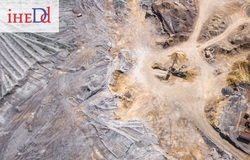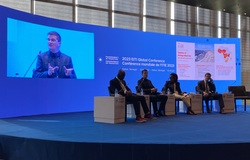Improving the mobilisation of domestic resources is a hight priority for African countries. The heavy dependence of these countries on the extractives industries implies understanding the mechanisms and consequences of the mining tax Regim applied in Africa on the development of the extractive industry as well as the public revenu collection.
Although several international institutions, non-governmental organisations and universities publish on this issue, data on mining tax Regim in Africa remains difficult to access. Thus, improving the transparency of information in the African mining sector has become a priority for the international community.
The database provided has three major innovations:
- An inventory of the 12 main taxes and duties (rates, bases, exemptions) that are due during the prospecting and mining phases of a mining project;
- An unprecedented historical depth;
- The link between each piece of tax information and its legal source.
The database now concerns 14 French-speaking countries, 7 English-speaking countries and 1 portuguese-speaking country: Angola, Benin, Burkina Faso, Cameroon, Chad, Republic of the Congo, Democratic Republic of the Congo, Cote d’Ivoire, Gabon, Ghana, Guinea, Kenya, Madagascar, Mali, Mauritania, Niger, Nigeria, Senegal, Sierra Leone, South Africa, Tanzania and Zimbabwe.
The database currently focuses on gold, that is exploited in 34 of the 54 African countries, making it the second larger producer in the world.
The information provided here is intended for researchers, States and public administrations, international institutions and all national and international stakeholders. The objective is to contribute to the improvement of public policies and the information of companies, with a goal of international development.
Full access to the legal and tax data of the website requires a subscription. The subscription is free for individuals or institutions that commit to make no commercial use. On the other hand, financial participation is requested from individuals or companies wishing to use the data for commercial purposes.
States have to arbitrate between the will to attract foreign investors and the need to increase public revenues. Applied to the economic data of a representative mine and associated with a cash flow model, this database offers the means for researchers and analysts to summarize the tax burden that should apply to mining companies in the African countries according to the legislation. The indicator calculated is the average effective tax rate (AETR), that represents the share of the mineral resource rent captured by the State on a mining project.
A very high AETR, near 100% or higher, should not be too strictly interpreted. It does not mean that the State manages to collect all of the rent; rather it means that the tax burden makes the mine economically unviable. This illustrates the significant impact of the tax system and the gold price on the profitability of a mining project.
The unprecedented historical depth of this database makes it possible to follow the evolution of the average effective tax rates since the 1990s in 21 African countries. This history shows the impact of the successive tax reforms decided by African States (rates, bases, calculation rules) to try to adapt to a context of instability of world prices.




